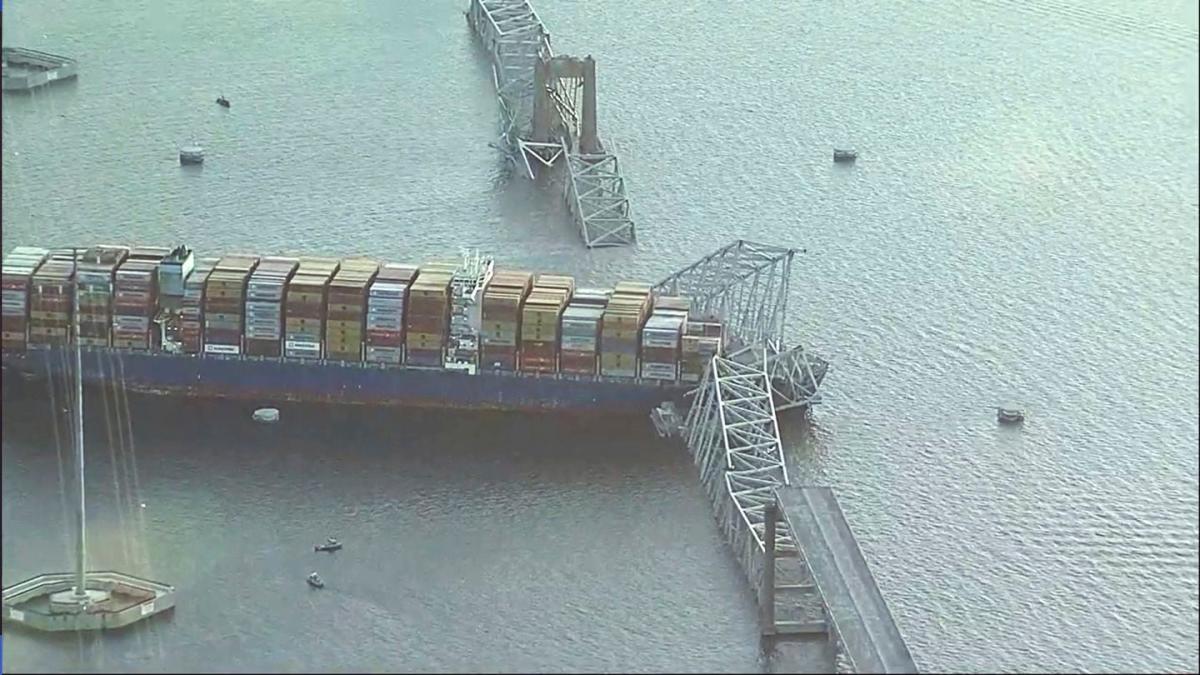No military operations have been affected by the port’s inability to send out or receive ships, command spokesman Erik Anthony told Military Times.
TRANSCOM officials are working with the military services, the household goods-shipping contractors and the vehicle-shipping contractor to identify which belongings are affected, Anthony said.
“We’re able to mitigate a lot of those impacts,” he said. “Thankfully, we have a host of ports on the East Coast that we can use as alternate ports.”
The TRANSCOM team will be in contact with service members to notify them if their belongings are affected, he added.
Key Bridge, a major thoroughfare in the Baltimore-Washington region that hosted more than 30,000 travelers each day, was destroyed early Tuesday when a cargo ship lost power and rammed into a support column. The bodies of two men were recovered at the site Wednesday; another four people remain missing and are presumed dead.
Federal officials have estimated rebuilding the bridge could cost at least $2 billion. At a White House press conference Wednesday, Transportation Secretary Pete Buttigieg did not say how long new construction could take but noted that building the original bridge took five years. Reopening the Port of Baltimore may come sooner.
The accident has snagged travel in the mid-Atlantic ahead of the military’s busy moving season, which typically begins May 15.
Since vessel traffic at the port is indefinitely suspended, TRANSCOM officials are working to mitigate the potential long-term effects, Anthony said. Alternate ports that handle commercial shipments are expected to grow increasingly congested; officials are looking at moving cargo by rail and truck, and perhaps sending some shipments to a West Coast port instead of one on the East Coast.
International Auto Logistics, the company that ships troops’ personal vehicles to and from overseas, said on its website Wednesday that it didn’t have any cargo aboard the Dali, the ship involved in the incident.
“IAL is currently working with our shipping partners for alternate shipping ports to minimize delays as much as possible,” company officials said.
Company representatives will be contacting troops who may experience delays because of the incident “as soon as more information becomes available,” IAL said.
“All carriers that use Baltimore as their primary port of call are competing for the same resources at other ports on the U.S. East Coast, so making a decision on where to move operations requires ensuring that assets to support loading and unloading along with adequate port space to stage cargo have been secured and are available,” the company added.
